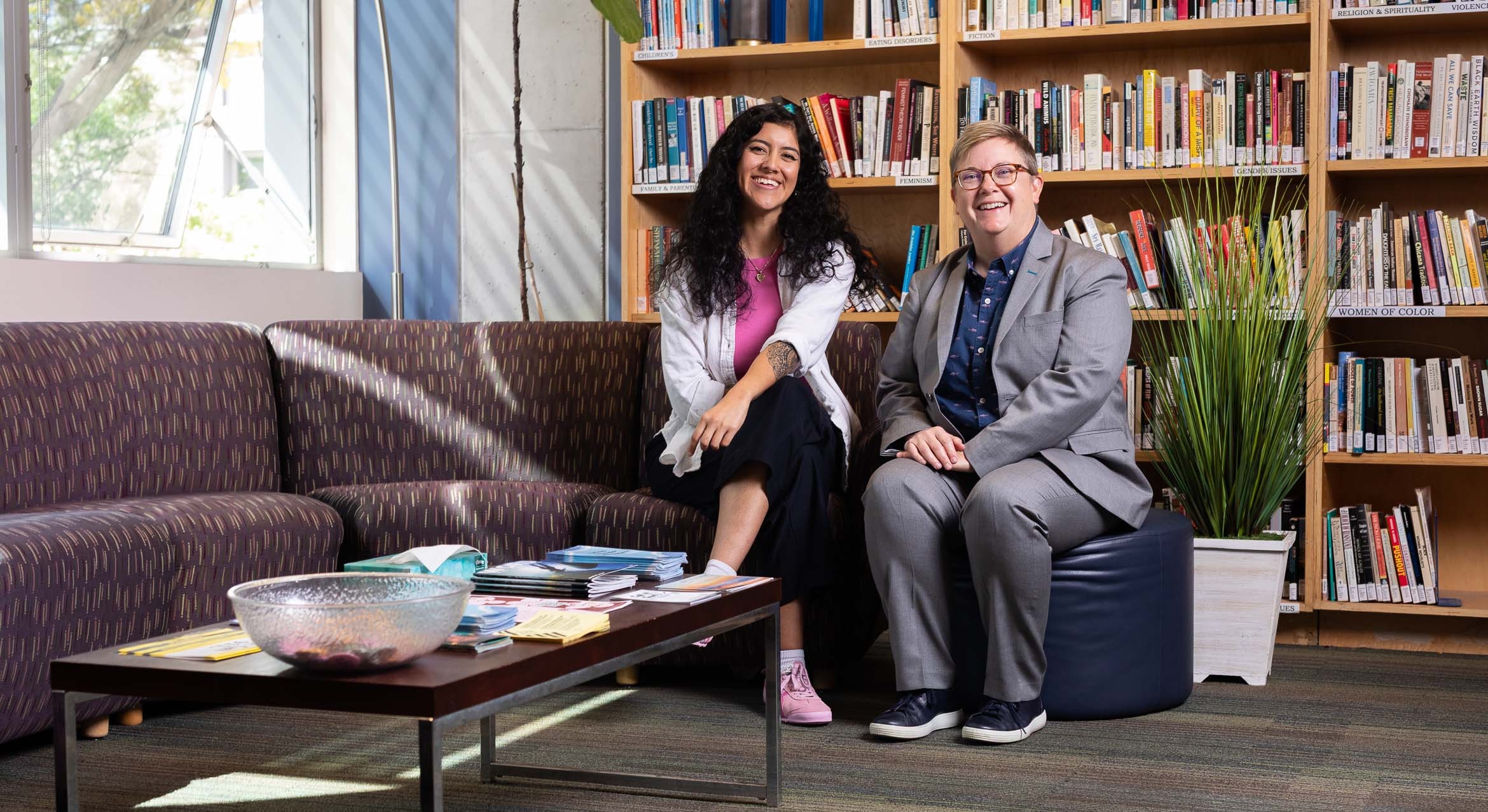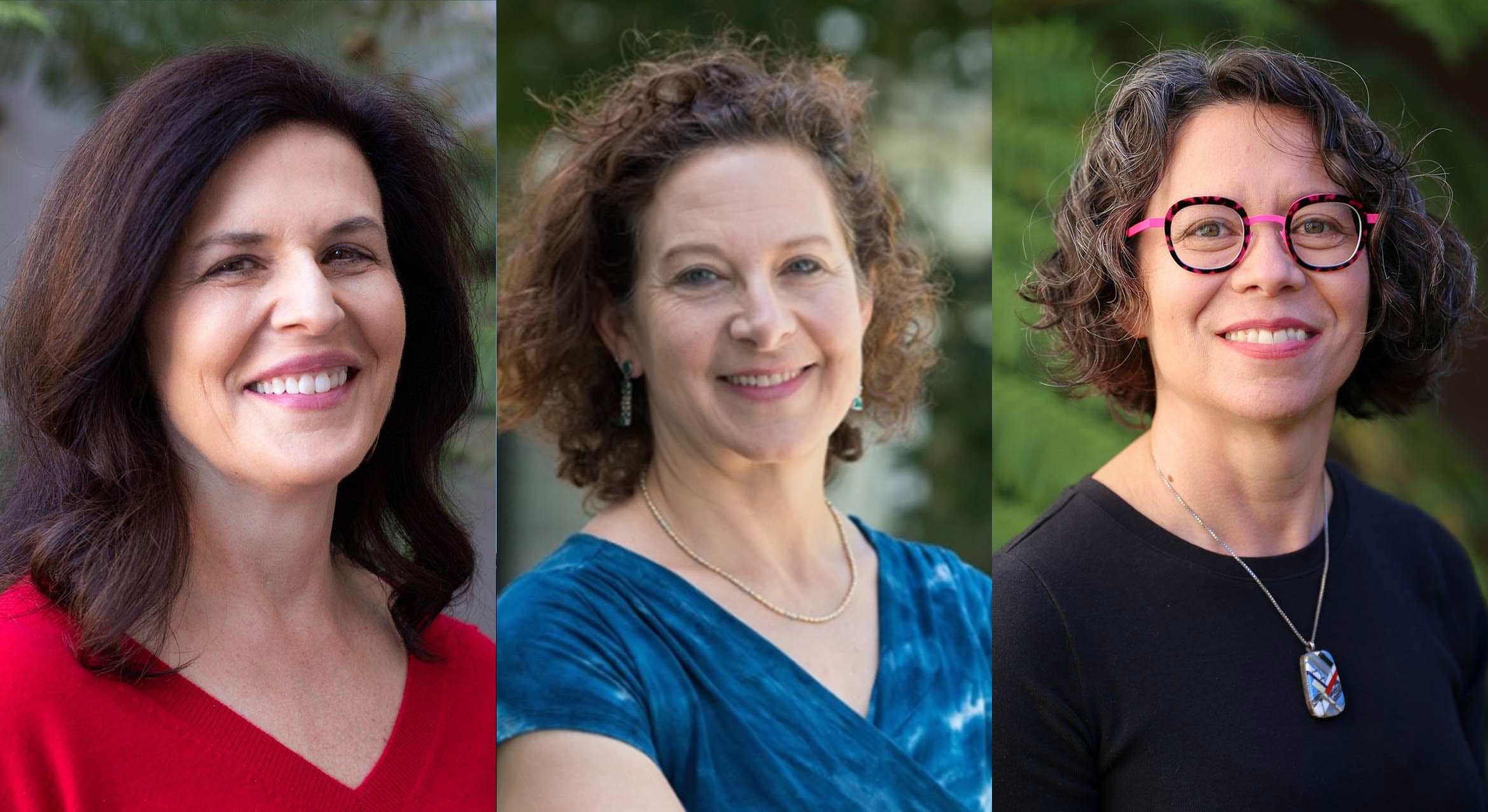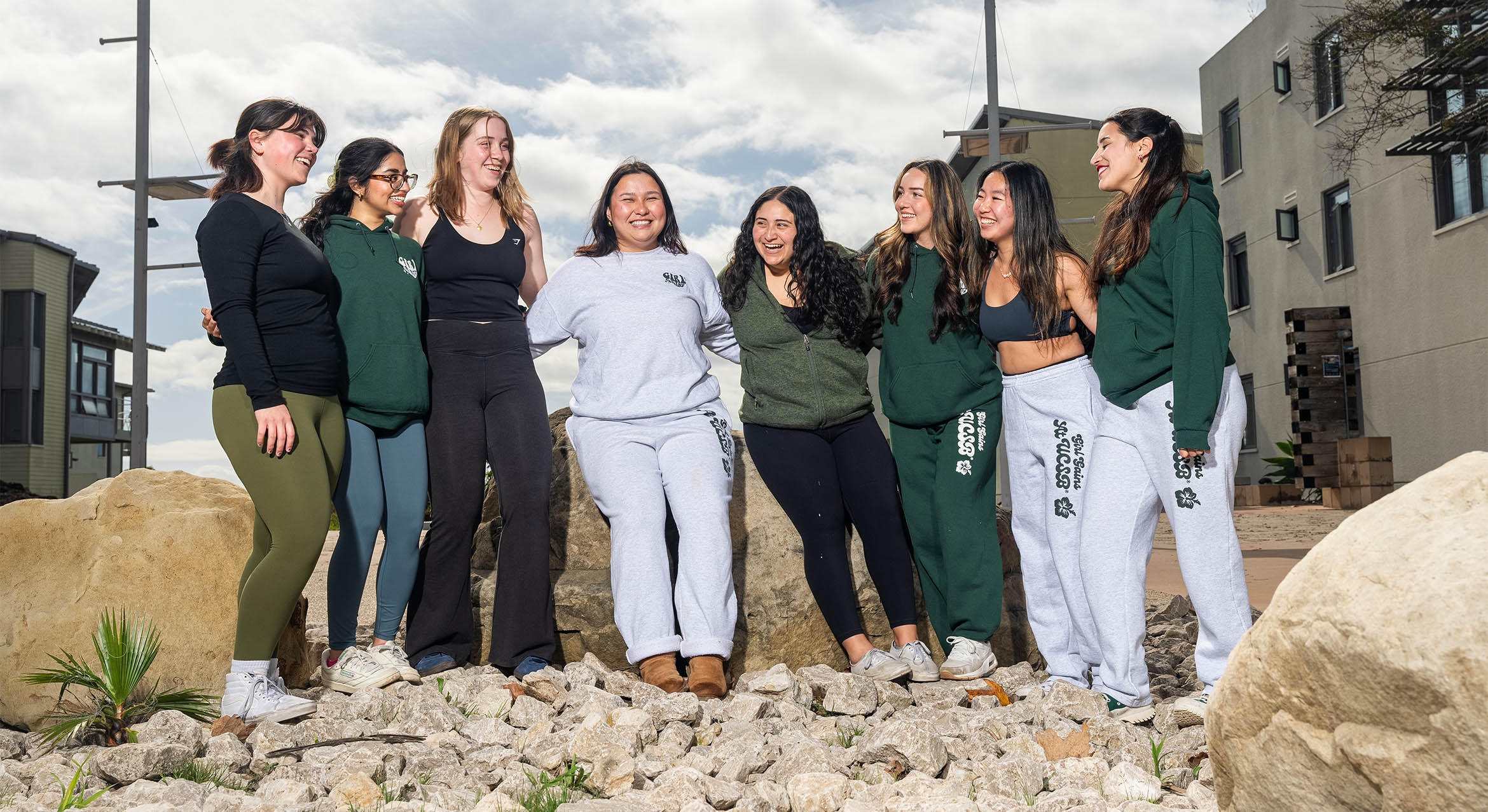‘Messengers for Success’
Hovering over bright white circuitboards, each the approximate size of a Saltine cracker, middle-schoolers Diana Arrellano and Kerigan Ringer wrangle with tiny clusters of wily wires. The other key pieces — an inductor small as the tip of a pinky and that single, essential microchip — are in place. They think.
The moment of truth arrives: voltage check on the multimeter. Ringer steps up first. As she connects her device to the instrument, a teacher reminds her, “It’s got to hit five volts to function. A small mistake can make a big difference.”
The reading: 5.1. On the money. Marveling at the now-functioning self-made, handheld, renewable energy-sourced cell-phone battery charger plunked humbly on her desk, Ringer exclaimed with gusto, “Yay! I did it right!”
To the UC Santa Barbara-based mentors who helped her build the thing, Ringer’s enthusiastic reaction was more exciting than the realization that it actually worked. It’s all about sparking an interest in engineering — and opening a line of sight to the future — for students who may not otherwise get such exposure so young. Even more specifically, it’s about making those connections for females.
Welcome to Engineering is for Women, a pilot initiative of UCSB’s Mathematics, Engineering, Science Achievement (MESA) Program, which fosters student access to higher education and careers through academic mentorship, tutoring, college planning, career advising, family involvement and other strategies.
Since fall, 20 local middle-school students have been working weekly on the engineering project alongside their UCSB mentors, all undergraduates in STEM (science, technology, engineering, mathematics) majors, all members of both MESA and student organization Los Ingenieros — and all women.
“For middle school kids, and girls especially, it can be such a confusing time,” said mentor Lorena Covarrubias, a fourth-year electrical engineering student at UCSB who hopes to go into industry following her graduation in June. “To be able to support them and show them the possibilities is huge. This project isn’t all about the project. The project is a way to show them that bigger picture — college, careers.”
That’s the ticket.
‘Messengers for Success’
By providing specialized, yearlong outreach to middle-school girls, particularly those who are first-generation college-bound and/or low-income, Engineering is for Women fits perfectly with MESA’s mission, and builds on it. In addition to weekly mentored work sessions at their home campuses — La Cumbre or Goleta Valley Junior High — the young women attend periodic weekend events at UCSB for hands-on activities and panel discussions with UCSB engineering students and alumni, as well as women faculty members and graduate researchers in STEM disciplines, and professional women in STEM fields.
“The pipeline system we have in this country for STEM positions and opportunities, from undergrad to industry, for underrepresented minorities, low-income, first-generation students, and for women in particular, it’s pretty leaky — and that’s unfortunate,” said Mario Castellanos, executive director of UCSB’s Office of Education Partnerships (OEP), which oversees MESA and several other outreach efforts. “That’s one reason why our mentors reflect the background of students that they’re serving. They have had those same challenges, and they make great role models. They’re the best messengers for success at this stage.”
The messengers in the new female-focused initiative that is Engineering is for Women include Marcela Areyano, who got a UCSB bachelor’s degree in mechanical engineering in 2012, worked for three years at Raytheon, then returned to campus as a graduate student in the fall of 2015. She’s now aiming for a Ph.D. and a career in engineering academia.
“It’s so important that these younger students meet people like us because there are not a lot of women in engineering, but hopefully there will be more,” said Areyano, who is the mentor coordinator for the pilot program. “Showing them the array of things they could do, and having those interactions with female mentors — it’s really important at those younger ages. Seeing other females who are engineers can really make you see yourself in this.”
The pilot program is a decade in the making. Since 2006 Gerardo Aldana, an associate dean of UCSB’s College of Creative Studies, had being batting around the idea for an outreach project to engage young students with engineering by teaching them to build battery packs for their beloved cell phones. When former student and UCSB engineering and MESA alum Jesus Medina told Aldana a year ago he’d figured out how to make it work, it was time to find funding.
In a serendipitous twist, MESA’s director, Phyllis Brady, and OEP’s Eric Nebeker had just written a grant through The Engineering Information Foundation that focused on mentorship of female middle-schoolers. A few tweaks and crossed fingers later, Aldana and seven UCSB undergraduates launched the project with 20 students in two schools.
‘Lifting the Hood’
“The metaphor we always use is ‘lifting the hood,’” said Aldana, a professor of anthropology and of Chicano/a studies, who has a bachelor’s degree in engineering and was a MESA tutor throughout his undergraduate years. “It’s that idea of taking what they know, what’s familiar, and opening it up, lifting the hood, to see what’s underneath. You say we’re going to do something with a cell phone and you have their attention, then it’s a matter of how do you keep it. We have great context, great materials and great activities. And these wonderful mentors.”
Such as Abril Ascencio. The second-year mechanical engineering major said she was driven toward mentorship because she didn’t have much of it herself before UCSB and MESA. “Our job as mentors is not just to teach them something about engineering and to help them with this project, but to be role models for them,” she said. “It’s about breaking down those walls.”
The bigger picture — and cultivating in students the ability to see it — is a core goal of the program, which also includes cultural components to foster a sense of connection and continuity between their pursuit of education and everything else in their life, friends and family.
Which is why, by way of the larger gatherings at UCSB, the outreach program comes with another intriguing twist: Mom. When they visit campus, the students bring along their mothers or other close female family members. Exposing the adults to engineering, to higher education, and to the opportunities both can bring, is crucial, according to Aldana and Brady. Support at home can majorly boost a student’s odds of success in college and beyond.
“It’s absolutely vital to have the families involved,” said Brady. “For the students to see their parents have the faith in them to go on and complete college and maybe become a professional, to make difference in the world, to have better lives and be able to educate their own children — it’s huge. And showing the parents that college is a safe place for their kids to go, that’s exciting as well. Parents want the best for their kids. When the kids get energized about learning in its purest form — exploring, developing, creating — the parents get energized.
“Honoring females in particular as not only capable, but as potential real leaders in a STEM field, resonates with the families,” Brady continued. “It’s that safe space idea of bringing attention to the issue without preaching to them, and exposing them in a positive way. They don’t need to be told what stereotypes they’re up against. It’s about self-empowerment and problem solving. What can you do? That’s what engineering is all about.”
Added Aldana: “It’s a non-linear approach to education. It can’t be just ‘push this button, turn this crank, provide this skill, some additional training and everything’s going to be great.’ It’s a collection of components that work together to give students access and opportunity. So we play with the tweaks and switches and cranks that we do have, and we try to do it in a way that speaks to more of the whole child than just the part that’s going to get the grade.”
Engineering is for Women students will present their final projects at UCSB’s 17th Annual Science & Technology MESA Day, Saturday, Feb. 27. The event invites 6th- through 12th-graders to a day of hands-on activities, competitions, mentoring, tours and motivational talks.







